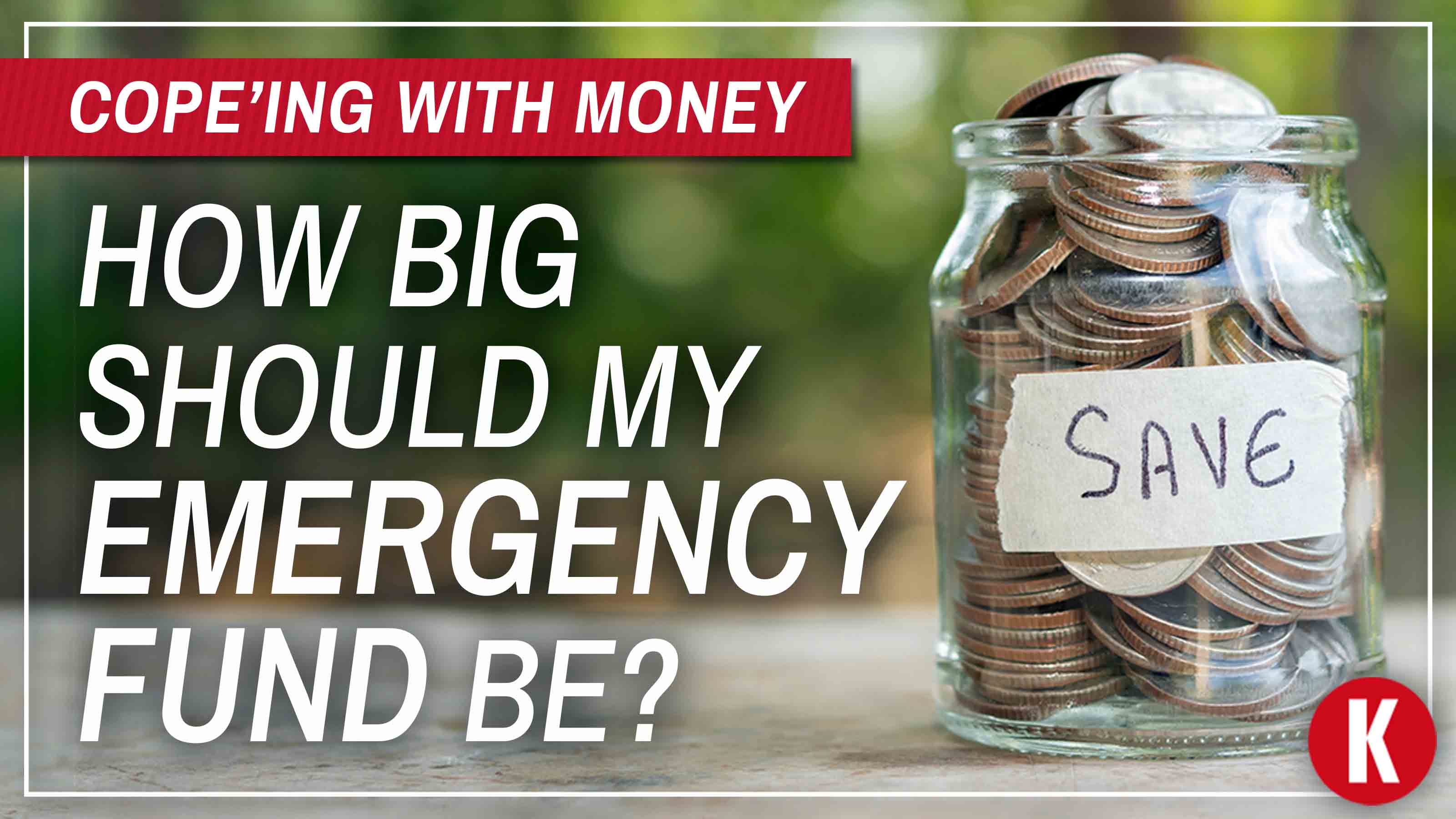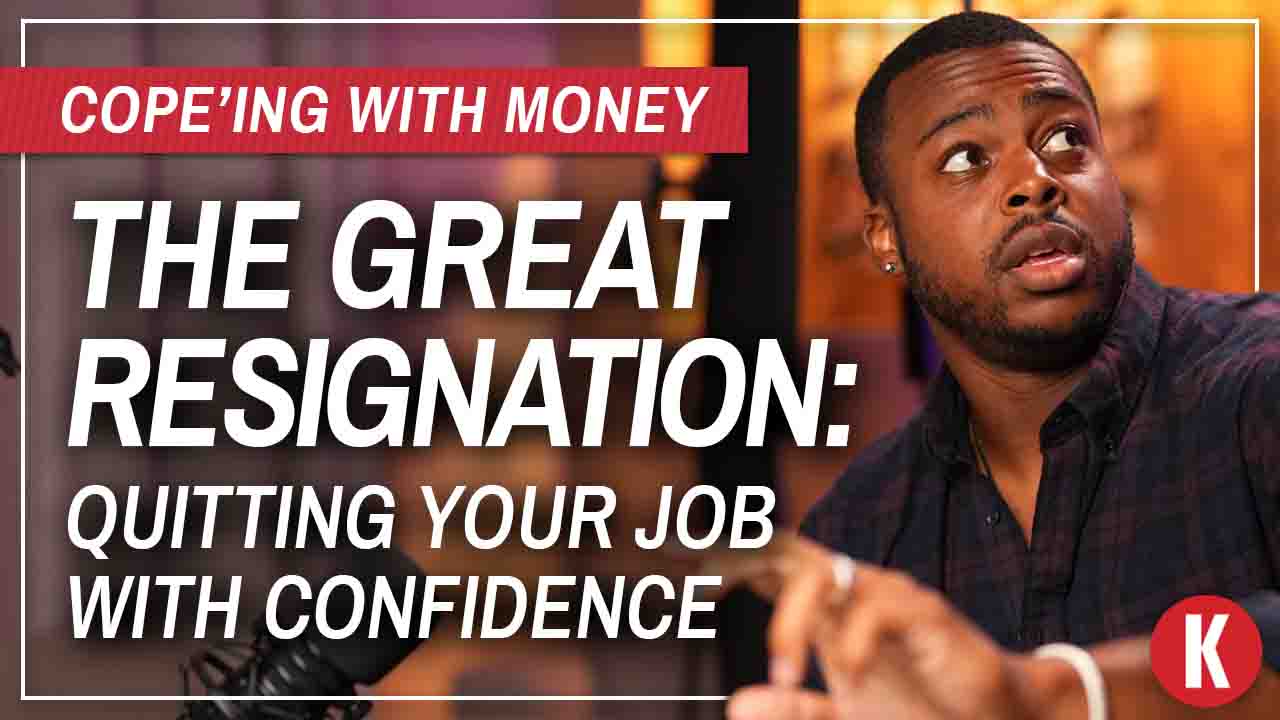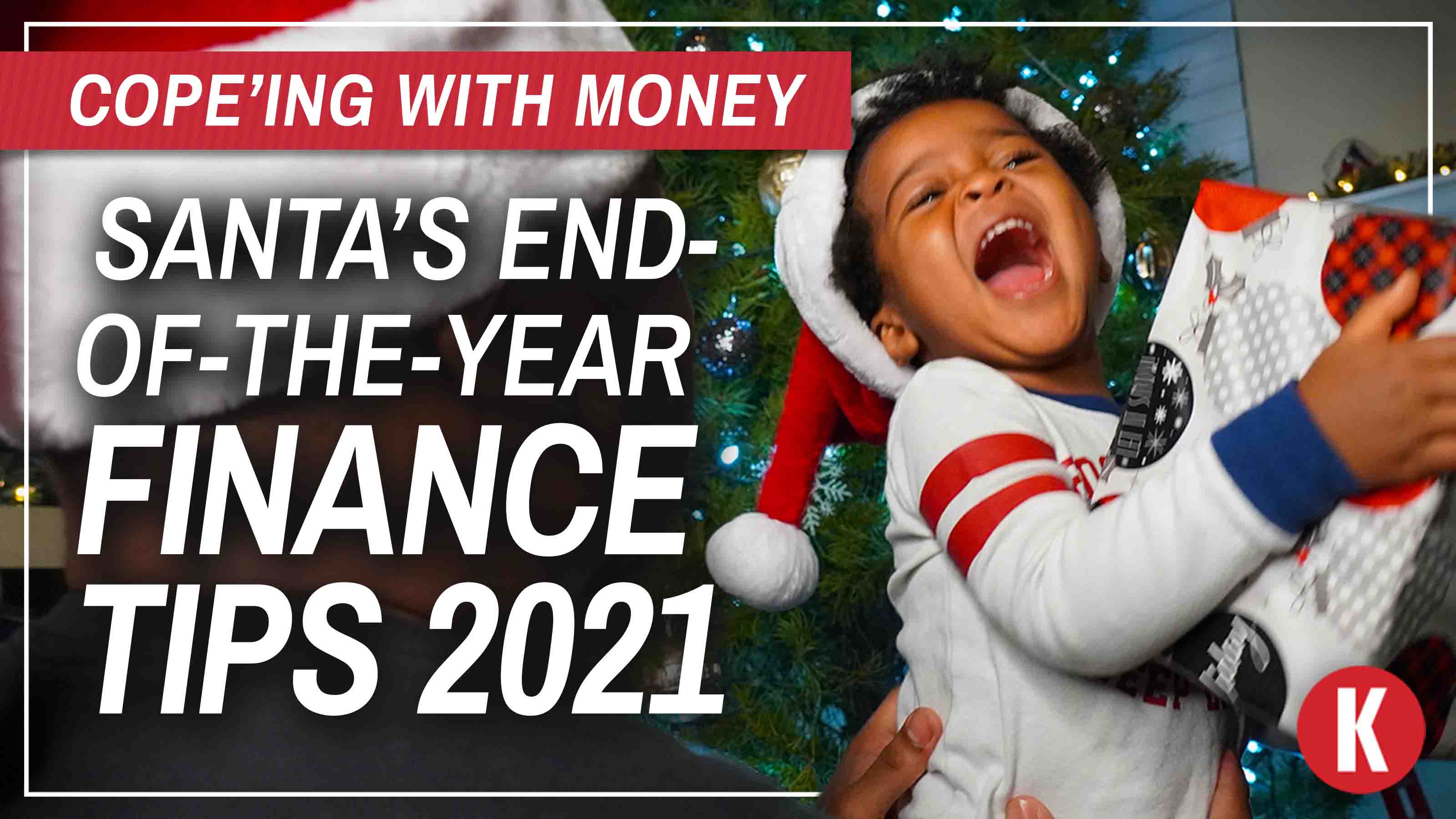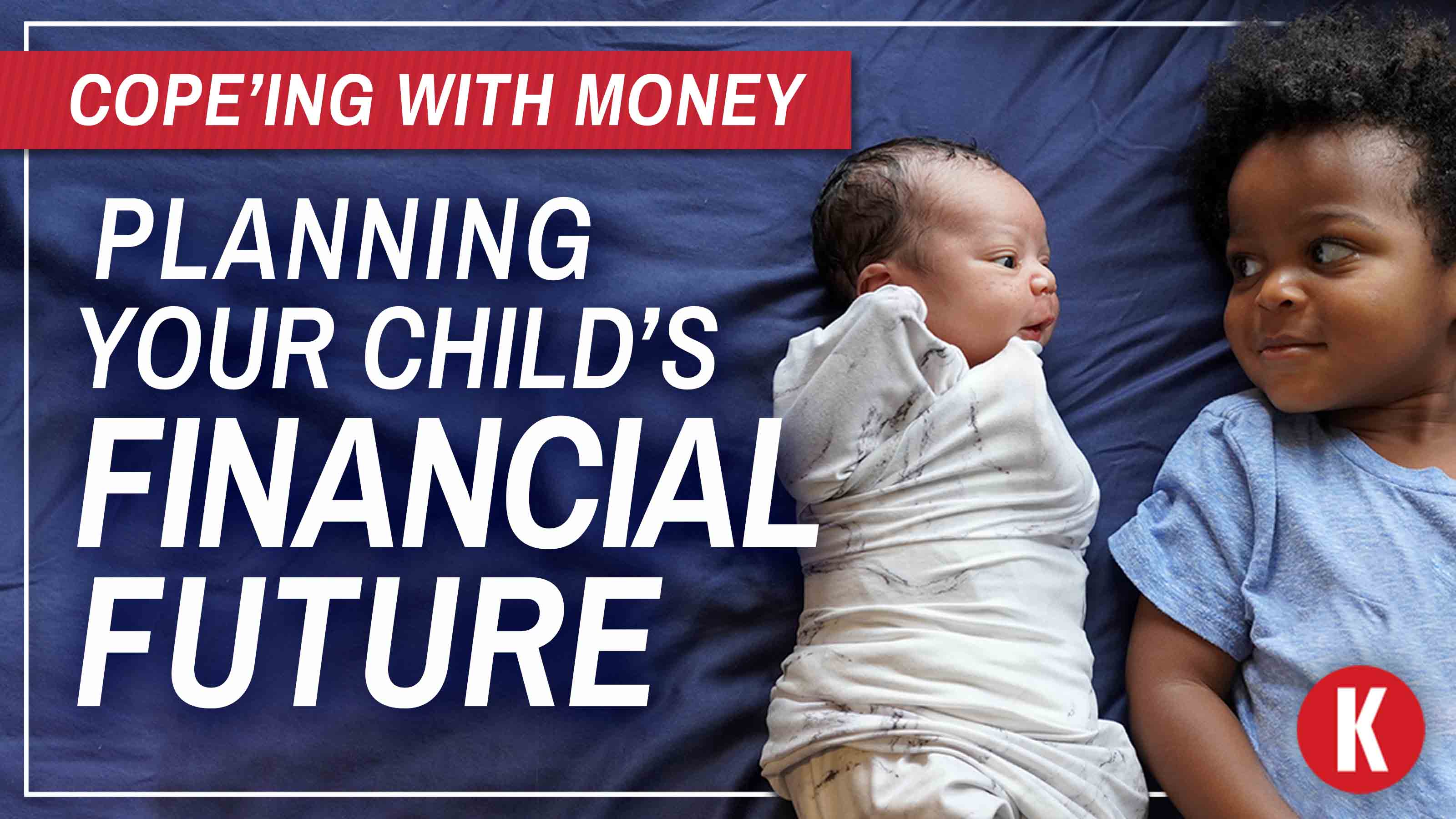3 Reasons You Will Never Get Out of Debt
Change these bad habits to put a dent in what you owe.

Profit and prosper with the best of Kiplinger's advice on investing, taxes, retirement, personal finance and much more. Delivered daily. Enter your email in the box and click Sign Me Up.
You are now subscribed
Your newsletter sign-up was successful
Want to add more newsletters?

Delivered daily
Kiplinger Today
Profit and prosper with the best of Kiplinger's advice on investing, taxes, retirement, personal finance and much more delivered daily. Smart money moves start here.

Sent five days a week
Kiplinger A Step Ahead
Get practical help to make better financial decisions in your everyday life, from spending to savings on top deals.

Delivered daily
Kiplinger Closing Bell
Get today's biggest financial and investing headlines delivered to your inbox every day the U.S. stock market is open.

Sent twice a week
Kiplinger Adviser Intel
Financial pros across the country share best practices and fresh tactics to preserve and grow your wealth.

Delivered weekly
Kiplinger Tax Tips
Trim your federal and state tax bills with practical tax-planning and tax-cutting strategies.

Sent twice a week
Kiplinger Retirement Tips
Your twice-a-week guide to planning and enjoying a financially secure and richly rewarding retirement

Sent bimonthly.
Kiplinger Adviser Angle
Insights for advisers, wealth managers and other financial professionals.

Sent twice a week
Kiplinger Investing Weekly
Your twice-a-week roundup of promising stocks, funds, companies and industries you should consider, ones you should avoid, and why.

Sent weekly for six weeks
Kiplinger Invest for Retirement
Your step-by-step six-part series on how to invest for retirement, from devising a successful strategy to exactly which investments to choose.
Do you feel as if you'll be in debt forever? Join the club. One survey found that 13% of Americans think they’ll never pay back all their loans, and another 8% say they won’t pay off what they owe until they're in their 70's.
Finding yourself buried in debt can be discouraging, but there's hope. We’ve rounded up three common reasons people can't get out of debt — and offer advice on how to turn things around.
Your Mortgage Is Too Big
The American Dream can turn into a nightmare if you take on a bigger mortgage than you can afford. Today, the average homeowner's mortgage makes up 69% of total household debt. If your mortgage is too much of a load for you to carry, you might need to find a roommate to help cover costs, downsize to a less expensive home, or rent instead of owning until you can save enough for a big downpayment.
From just $107.88 $24.99 for Kiplinger Personal Finance
Become a smarter, better informed investor. Subscribe from just $107.88 $24.99, plus get up to 4 Special Issues

Sign up for Kiplinger’s Free Newsletters
Profit and prosper with the best of expert advice on investing, taxes, retirement, personal finance and more - straight to your e-mail.
Profit and prosper with the best of expert advice - straight to your e-mail.
If your goal is to become mortgage-free as fast as possible, adding a little extra to your monthly payment is an easy way to get there. Let's say you have a 30-year, $200,000 mortgage with 25 years remaining and a 4.5% interest rate. By paying just $100 more per month toward your principal, you’d save nearly $21,000 in interest and be out of debt almost four years early.
Your Emergency Fund Is Too Small
A major health expense, surprise home repair or sudden job loss could deal a blow to anyone’s finances. Yet, only 38% of the people polled by Bankrate have enough cash on hand to cover such emergencies. Many people said they'd have to ask a family member or friend for the money or foot the bill with a credit card. Either way, you could end up drowning in debt if you have to borrow cash every time an unexpected expense surfaces.
That’s why it’s important to put away enough money to cover six months’ worth of living expenses. If that sounds like a lot, you don’t have to do it all at once. You can use a free service such as Digit to automatically set aside a little bit at a time. Once Digit is connected to your bank account, it analyzes your income and spending habits to determine how much you can afford to contribute to an emergency fund.
Your Interest Rates Are Too High
The higher your interest rates, the more you’ll have to pay to wipe out your debt — and possibly the more time it will take. Say you have a $10,000 balance on a credit card with a 15% annual percentage rate, which is typical these days. If you pay $225 a month, it will take 5 1/2 years and almost $4,700 in interest to pay off your debt. But if your APR is 11.6%, which is the average for low-rate cards, you’d be debt-free seven months faster and save more than $1,500 in interest.
Call your credit-card company to see if your rate can be lowered. If not, consider taking advantage of a 0% balance transfer offer from another credit-card company. A third option is to consolidate your high-interest credit-card debt into a lower-rate personal loan.
Take a look at seven more reasons you’ll never get out of debt to learn more.
Profit and prosper with the best of Kiplinger's advice on investing, taxes, retirement, personal finance and much more. Delivered daily. Enter your email in the box and click Sign Me Up.

Browne Taylor joined Kiplinger in 2011 and was a channel editor for Kiplinger.com covering living and family finance topics. She previously worked at the Washington Post as a Web producer in the Style section and prior to that covered the Jobs, Cars and Real Estate sections. She earned a BA in journalism from Howard University in Washington, D.C. She is Director of Member Services, at the National Association of Home Builders.
-
 Over 65? Here's What the New $6K 'Senior Deduction' Means for Medicare IRMAA Costs
Over 65? Here's What the New $6K 'Senior Deduction' Means for Medicare IRMAA CostsTax Breaks A new deduction for people over age 65 has some thinking about Medicare premiums and MAGI strategy.
-
 U.S. Congress to End Emergency Tax Bill Over $6,000 Senior Deduction and Tip, Overtime Tax Breaks in D.C.
U.S. Congress to End Emergency Tax Bill Over $6,000 Senior Deduction and Tip, Overtime Tax Breaks in D.C.Tax Law Here's how taxpayers can amend their already-filed income tax returns amid a potentially looming legal battle on Capitol Hill.
-
 5 Investing Rules You Can Steal From Millennials
5 Investing Rules You Can Steal From MillennialsMillennials are reshaping the investing landscape. See how the tech-savvy generation is approaching capital markets – and the strategies you can take from them.
-
 How Big Should My Emergency Fund Be?
How Big Should My Emergency Fund Be?Feature NFL linebacker and Kiplinger contributing editor Brandon Copeland discusses the importance of building an emergency fund.
-
 Homeowners Insurance: How to Protect Your Home
Homeowners Insurance: How to Protect Your HomeBrandon Copeland NFL linebacker and Kiplinger contributing editor Brandon Copeland discusses the ins and outs of homeowners insurance.
-
 The "Real" Cost of Buying a Car
The "Real" Cost of Buying a CarFeature Atlanta Falcons linebacker and Kiplinger contributing editor Brandon Copeland illustrates how car prices are far more than meets the eye.
-
 How to Plan a Budget-Friendly Family Vacation
How to Plan a Budget-Friendly Family VacationBrandon Copeland Atlanta Falcons linebacker and Kiplinger contributing editor Brandon Copeland provides tips on how to go on vacation without breaking the bank.
-
 The Great Resignation: How to Quit Your Job With Confidence
The Great Resignation: How to Quit Your Job With ConfidenceBrandon Copeland Atlanta Falcons linebacker and Kiplinger contributing editor Brandon Copeland provides tips on how to properly quit your job and upgrade your career.
-
 How to Achieve Your 2022 New Year's Resolutions
How to Achieve Your 2022 New Year's ResolutionsBrandon Copeland You've already made your New Year's resolutions. Atlanta Falcons linebacker and Kiplinger contributing editor Brandon Copeland explains how you can stick with them and accomplish them.
-
 Santa's End-of-the-Year Finance Tips
Santa's End-of-the-Year Finance TipsFeature Atlanta Falcons linebacker and Kiplinger contributing editor Brandon Copeland shares a few ways you can improve your finances before 2022 gets here.
-
 Planning Your Child's Financial Future
Planning Your Child's Financial FutureFeature Atlanta Falcons linebacker and Kiplinger contributing editor Brandon Copeland talks about ways to set your child up with a strong financial foundation.